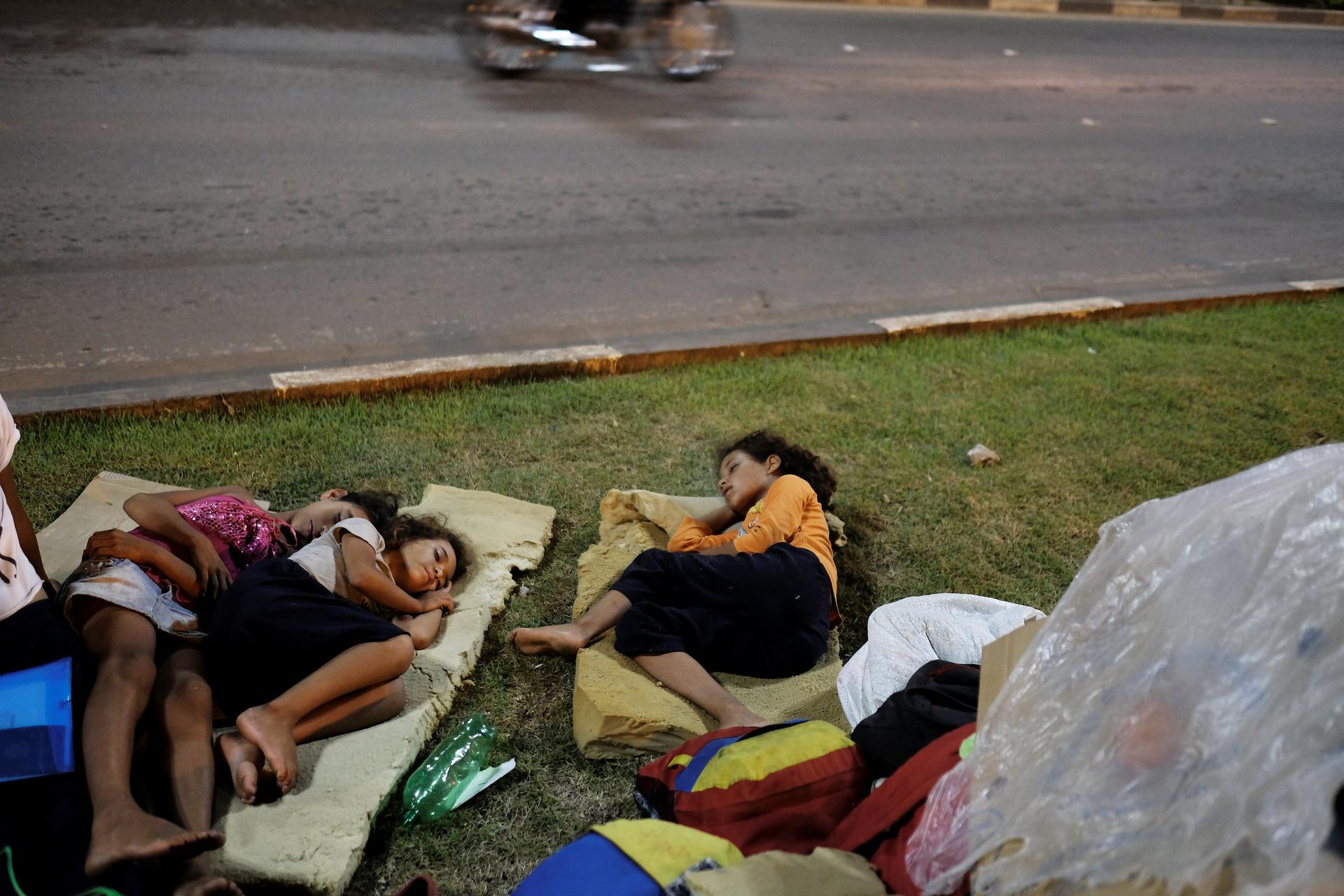For Venezuelans fleeing economic catastrophe, Brazil has proven a tough place to land
Venezuelan children sleep on the grass in front of interstate Bus Station in Boa Vista, Roraima state, Brazil, August 23, 2018.
Many Venezuelans thought they were leaving a collapsing economy for a land of milk and honey just next door.
But most of those fleeing the turmoil in Venezuela by walking into Brazil at an Amazon border crossing have found themselves surviving on the streets and sleeping in tents, hammocks or on pieces of cardboard.
Their drama is part of a deepening regional humanitarian crisis set off by the exodus of tens of thousands of Venezuelans who are voting with their feet and abandoning their country, mainly into neighboring Colombia, and also Ecuador and Peru.
The city of Boa Vista, capital of the Brazilian border state of Roraima, has received 35,000 Venezuelan immigrants in the past two years, swelling its population by more than 10 percent. Today, some 3,000 are homeless, according to the mayor’s office.
Near the city bus terminal, Venezuelans sleep on grassy highway medians and in shopping areas. Some are lucky enough to spend the night in tents handed out by refugee agencies.
Others hang hammocks outside car body shops and auto-parts distributors whose Brazilian owners allow them to spend the night under a covered area, as long as they are gone in the morning.
This generosity by local shop owners contrasts with an outbreak of xenophobic attacks on Aug. 18 against Venezuelan immigrants at the border town of Pacaraima, ignited after a Brazilian was allegedly robbed and stabbed by Venezuelans in his home.
“Some Brazilians treat us badly, but not all of them,” said Anyi Gomez, a pregnant 19-year-old who came to Brazil with her mother and survives by using a squeegee to clean car windshields for change at traffic lights.
The prenatal care she is getting at a public hospital in Brazil made it worth leaving Venezuela where her baby could have died for lack of food and medicine, she said.
On Tuesday, Brazilian President Michel Temer said the Armed Forces were being sent to Roraima for at least two weeks to help keep order and ensure the safety of immigrants. Temer blamed Venezuela’s authoritarian government for causing a regional crisis that requires a collective response.
Local churches provide meals or hand out bread and juice to the homeless Venezuelans.
“We have food, but no roof. And there is no work,” said Luis Daniel, from Caracas. “I came to get a job to take back things for my children who are going hungry in Venezuela. But all I have now is exhaustion from sleeping outdoors.”
The World is an independent newsroom. We’re not funded by billionaires; instead, we rely on readers and listeners like you. As a listener, you’re a crucial part of our team and our global community. Your support is vital to running our nonprofit newsroom, and we can’t do this work without you. Will you support The World with a gift today? Donations made between now and Dec. 31 will be matched 1:1. Thanks for investing in our work!
